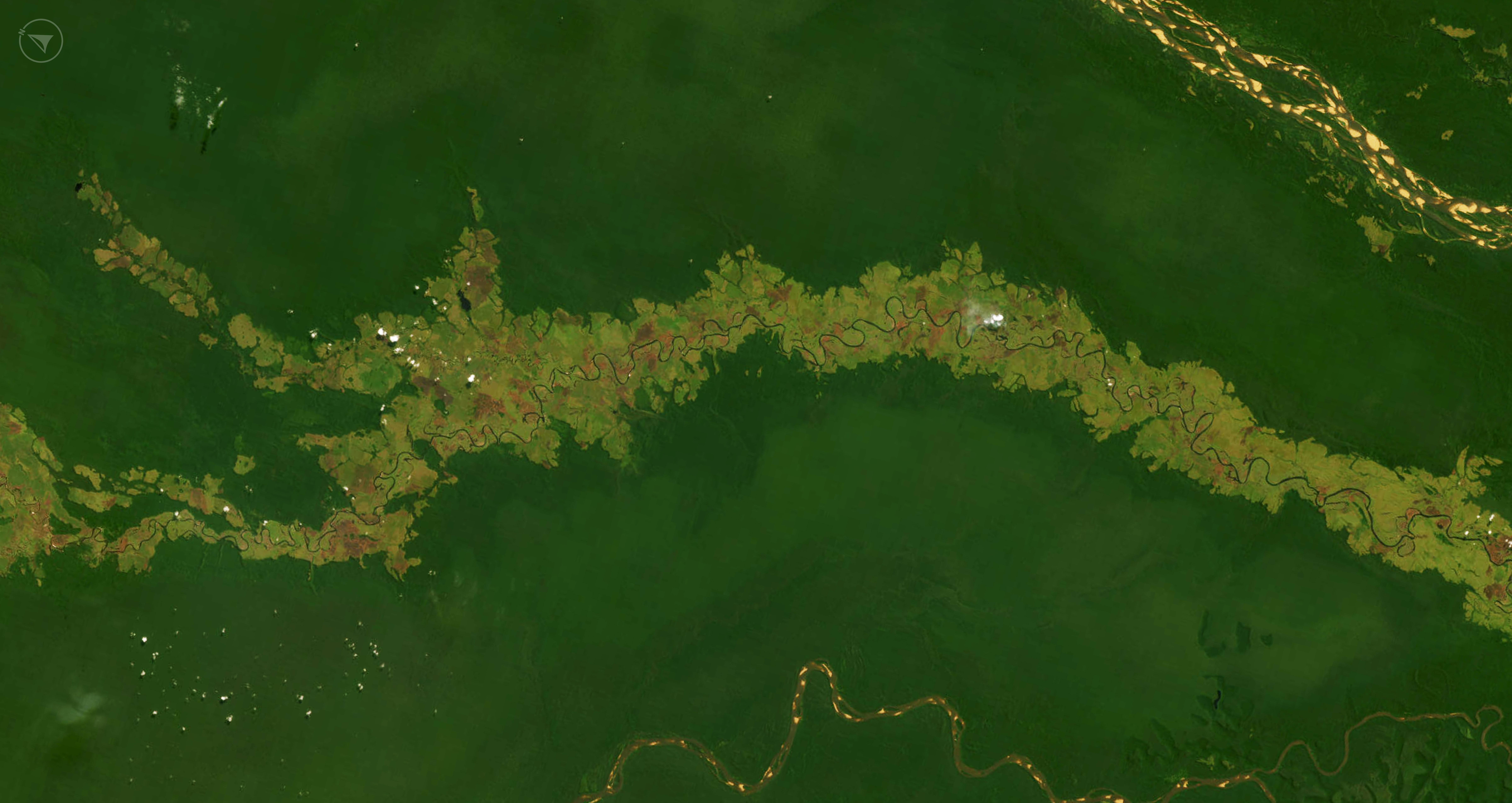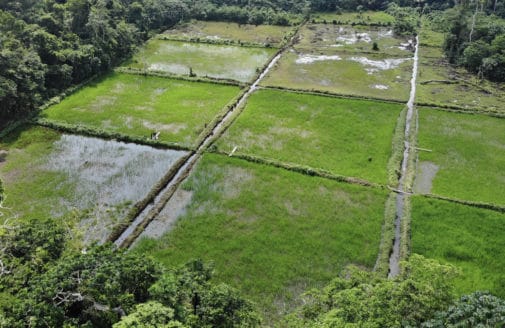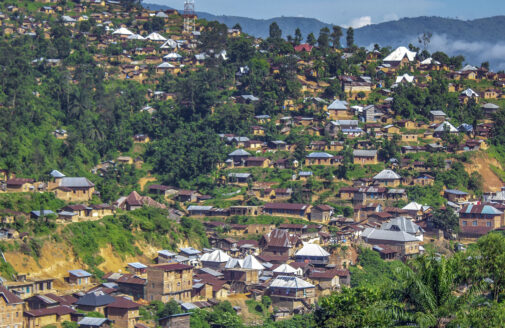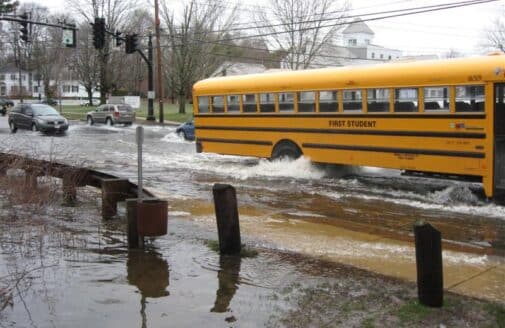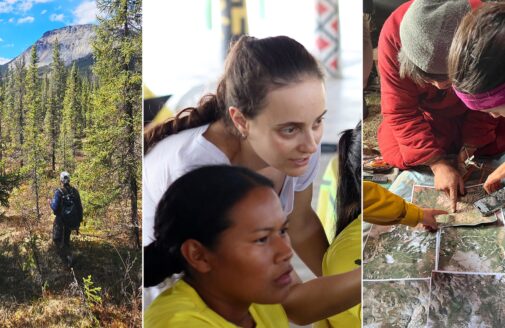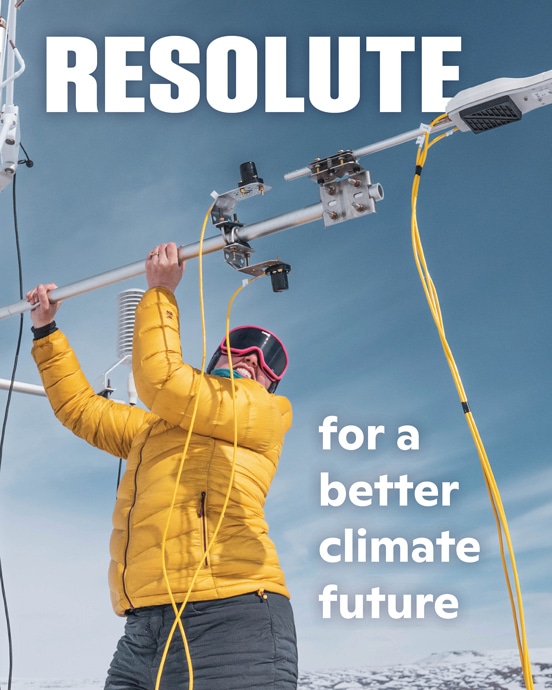High-level workshop builds pathways to stronger climate commitments in the DRC
Woodwell partners with the Congolese Ministry of Environment and Sustainable Development to support the country’s net-zero planning
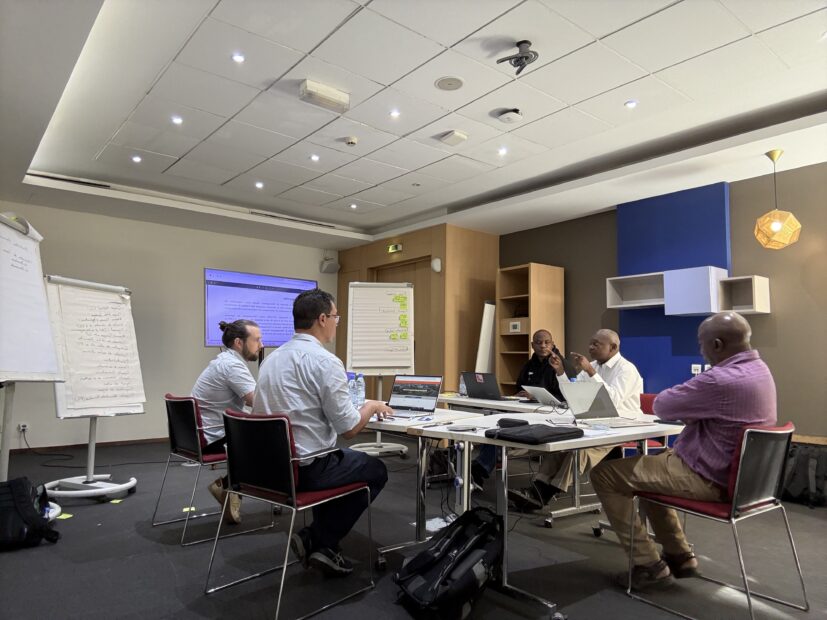
(From left) Kermarc, Bush, Zambo, Mbuyi, and Mutshaili discuss DRC’s climate commitments.
photo courtesy of Glenn Bush
Last month in Dakar, Senegal, Woodwell Climate Associate Scientist Glenn Bush and Forests & Climate Change Coordinator Joseph Zambo facilitated a high-level workshop with the Democratic Republic of Congo’s Director of Climate Change, Aimé Mbuyi, lead scientist on the country’s Nationally Determined Contributions (NDC) reporting process, Prof. Onesphore Mutshaili, and project consultant Melaine Kermarc. The goal of the workshop was to begin generating a clear set of priorities for the next five years for stepping up the ambition of the country’s NDCs, and to discuss strategies for monitoring and reporting on emissions.
Under the Paris Agreement, each country is required to submit to the UN Framework Convention on Climate Change a detailed description of their emissions reduction commitments and then regular reports on progress. Currently, DRC has pledged to reduce emissions by 21% by 2030, focusing on reform in their energy, agriculture, forestry, and other land use sectors. While NDCs are intended to represent a country’s highest possible ambition, DRC is looking to step up further. Officials are at work developing a plan to reach net-zero emissions, which would place the country among the leaders of climate policy in Africa.
In order to do this, DRC needs a reliable framework for measuring and monitoring emissions, so that progress can be accurately reported on. At the workshop, Bush, Mbuyi, Zambo, Kermarc and Mutshaili discussed ways to strengthen the NDC reporting process. Among the top needs identified was stronger institutional scientific capacity, increased coordination and data sharing, and more funding and awareness of the process at local and provincial levels.
“High quality data is essential to building a high integrity NDC,” says Bush. “Improving the scope and quality of data available to monitor carbon will not only help the country meet the highest tier of reporting standards, but also access performance-based payment mechanisms to help finance the transition to a low emissions economy.”
Through their conversations about challenges and opportunities, the group identified three areas for intervention that will help the country navigate towards a stronger emissions reduction plan. These recommendations were outlined in a report on the workshop proceedings.
- Improved governance and policy management: Establishing a National Climate Change Council to better integrate climate policy into national development plans.
- Science-backed carbon accounting and budgeting: Developing credible data standards for measuring emissions and ecosystem services to support transparent and effective reporting on climate performance.
- Cross-sectoral integration: Promoting emissions reductions across all sectors through collaborative partnerships, particularly in the field of climate-smart agriculture and carbon payment mechanisms.
Mr Aimé Mbuyi, Head of the Climate Change Division (CCD) at the DRC’s Ministry of the Environment and Sustainable Development, declared that “these recommendations reflect an important set of practical steps to move from aspiration to operational reality in order to increase the financing and impact to conserve our forests and stimulate sustainable development in the DRC.”
Woodwell Climate Research Center has been a long-time partner of the Ministry of Environment and Sustainable Development. The Center is assisting the ministry in laying the technical foundations to support the NDC improvement process and helping build in-country scientific capacity to make a net-zero emissions plan a reality. This and other partnerships will be essential in transitioning the DRC to a low-carbon economy.
“We appreciated the long-standing trust that has developed over years of formal and informal collaboration on climate policy,” said Mbuyi. “The scientific partnership with Woodwell is invaluable to us at CCD, providing actionable information that has proven essential to advancing the climate mitigation and adaptation agenda.”




